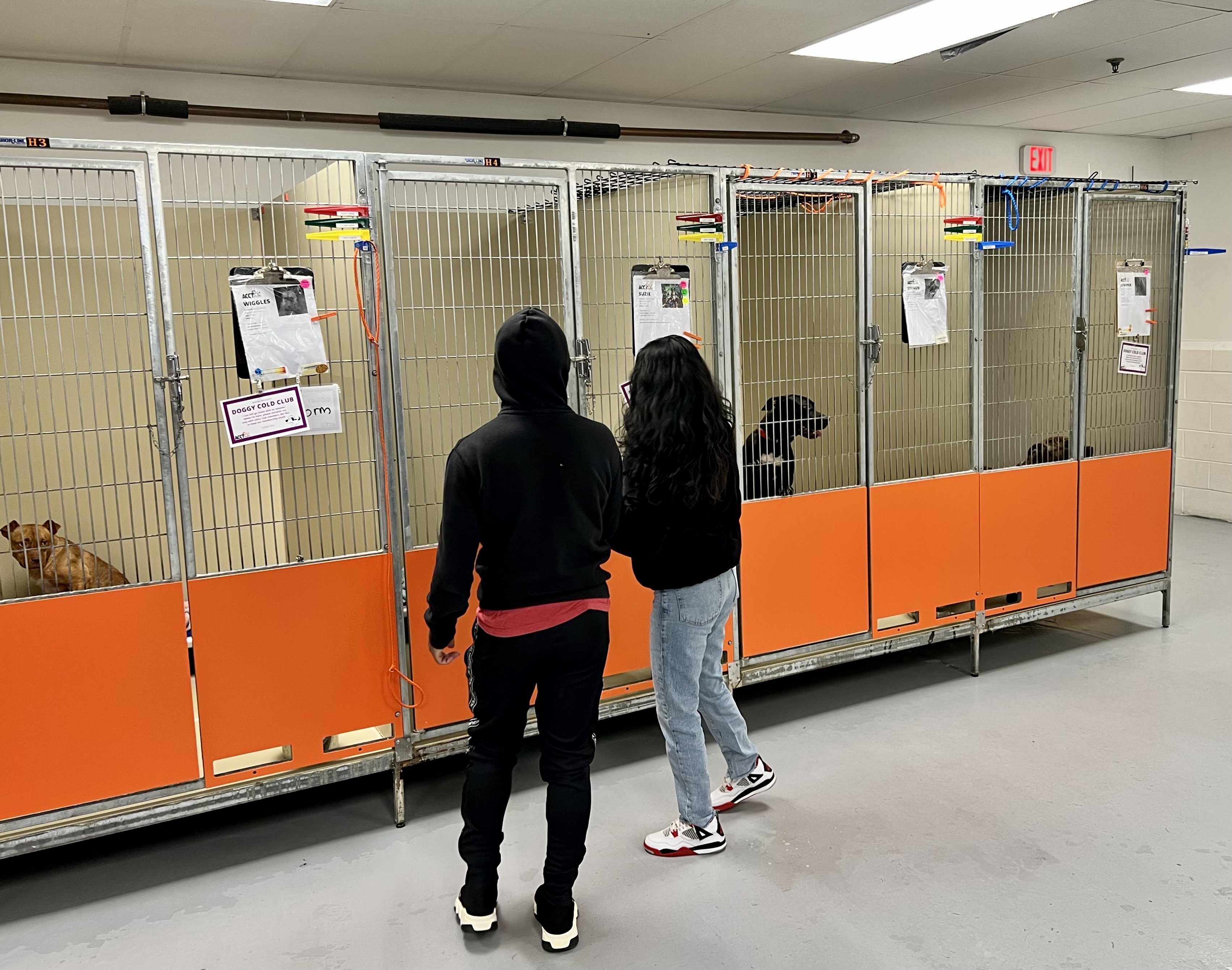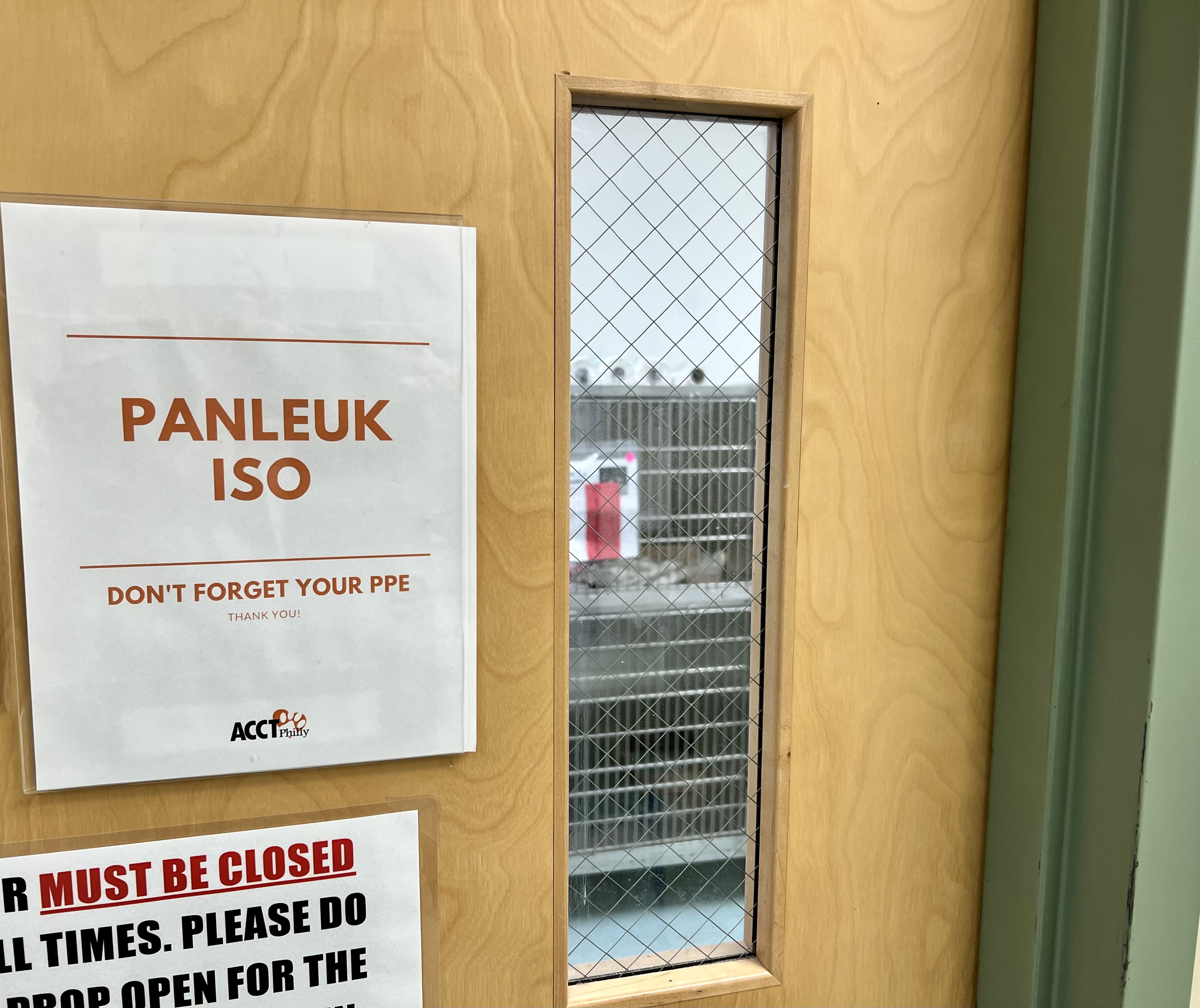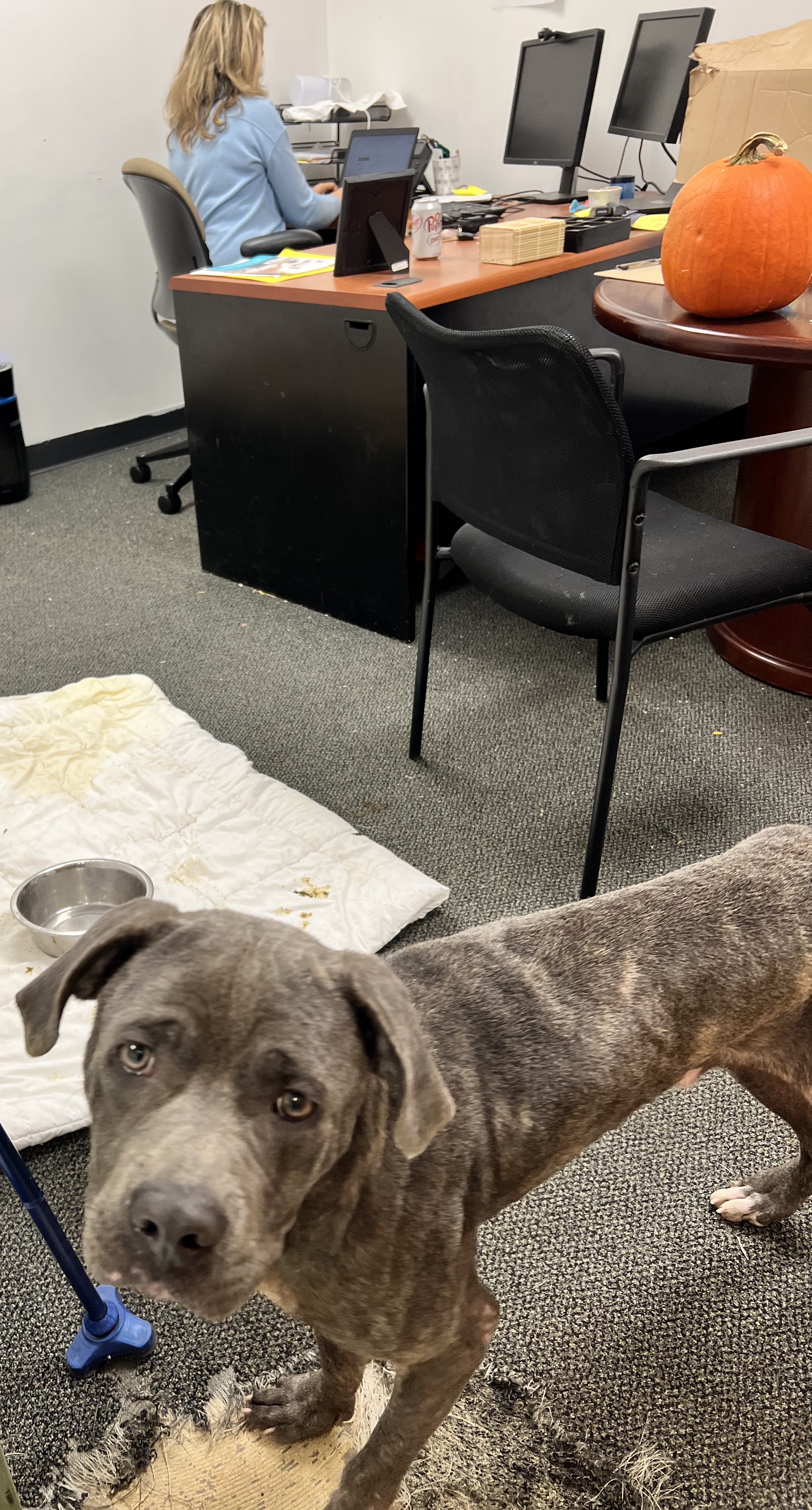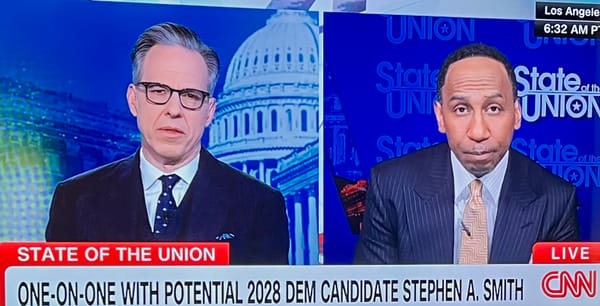Accounting for ACCT Philly
Everything old is new again.
In the decade since ACCT Philly started operations, I have been in the city animal shelter in Feltonville many times, but not lately.

Mainly because of COVID, I had not visited the 27,000-square-foot facility since it took over the 9,000-square-foot city vector space next door, a new roof and HVAC had been installed, new kennels were added, and an adoption center had opened.
My drought ended last Thursday when I toured the shelter with co-executive director Sarah Barnett.
She and Tara Schernecke were installed in November 2021 as the management duo after the sudden and mysterious departure of executive director Aurora Velazquez. And now the board of directors is searching for a permanent, single leader. That search should be concluded before the end of the year, board co-chair Marsha Perelman tells me.
Was there something wrong with the performance of the twin leaders?, I asked Perelman.
The board was pleased with their progress, she said, but felt the best organization for “ACCT Philly is the traditional structure with a single executive director.”
Each woman was invited to apply for the job. Barnett has applied, Schernecke has not.
“Having a strong internal candidate does not negate the need for a search,” Perelman told me in an email. Barnett, 35, told me she strongly endorsed the search.
The two women were the sixth leader since ACCT Philly began in 2012, taking over the operation of the shelter from the Pennsylvania SPCA.
Previous leaders were, chronologically, Tara Derby, Sue Cosby, Vincent Medley, Susan Russell and Velazquez.
The ideal candidate will have both shelter and administrative strength, according to the job requirements, posted on the ACCT website. It will pay up to $125,000, not unreasonable for a person supervising a staff of 81 and a budget of $6.7 million, $5.8 million from the city, which reflects a recent, dramatic 40% increase, according to ACCT. The remainder comes from fundraising and donations.
As I have said before, having leaders that serve about as long as a member of congress, two years, is not a good business model. Every leader brings their own methods and manners and staff is kept spinning by changes. Stability is a good thing, if you have a good leader.

As noted, I have been writing about animal care and control in Philadelphia since 2004, with my expose titled “The Cruel Cages” at was then called PACCA.
And when ACCT Philly launched, I was there and have kept tabs on it ever since.
Over the years, the shelter has had many problems, and lately some improvements, mentioned above.
In this report, I am setting aside the two years of COVID, which crippled operations. Many bad things happened in America that were unavoidable due to the pandemic, and that goes for the shelter. That will remain a black hole.
Now that it’s over, I wanted to see where ACCT stands.
A good place to start is with the numbers.
Prior to the 2020 renovation, ACCT had 58 large dog kennels, and 13 small dog kennels. It now has 69 large dog kennels, 12 small dog kennels, and 14 isolation kennels in two separate rooms, very important to prevent the spread of disease. Seven more large kennels are to be added next month, bringing the total to 76, said Barnett.
For cats, there are a total of 192 cages, down slightly from the 194 before renovation, but rearranged to create more space, and new cages added for ringworm and Panleuk, cat diseases.

ACCT reports 1,701 volunteers, up from 1,453, before COVID changed everything.
The number of rescue organizations pulling animals out of the shelter has increased to 377 from the pre-COVID total of 357, Barnett said.
Those numbers are encouraging, but the most important numbers are the “save” rate, meaning the number and percentage of animals taken in to the shelter who exit alive — to an adoptive family, to foster care, or to a frescue group.
The average save rate for the last four months is 87% for dogs, 82% for cats. Those aren’t bad numbers, but they have been better in recent years.
To put this in context, the save rate was 62% when ACCT Philly began operations in 2012. It was about 20% in 2004 when I first started writing about it.
That’s the good news. Here’s the bad: Earlier this month ACCT announced it was at 140% of occupancy, taking in an average of 18 dogs a day, the second highest total for an October.

The shelter begged for extra help from rescues, and took to housing dogs in staff offices to save them from euthanasia. When I visited, Warlock was housed in Barnett’s office. He was on a “time stamp,” or a death warrant to be executed within hours unless he was rescured. (Warlock was, and I will discuss “time stamps” in a future column.)
October was bad, Barnett believes, because of the housing crisis, with people being evicted, and some landlords not accepting pet dogs. Despite the crowding, the kennel was relatively quiet, as was the entirely facility, and smelled fresh.
Two bad things can happen when the shelter is overcrowded — disease can break out, and dogs must be euthanized to create space for new arrivals. That’s when they get “time stamped.”
Several volunteers mentioned to me their frustration with local rescues that are bringing up dogs from the South, for instance, while Philadelphia dogs are being euthanized.
Given her position, Barnett did not want to criticize her rescue partners, but I can raise questions.
PSPCA, for instance, pulled 3,828 dogs from ACCT in 2012, but only 82 in 2021, making it the fifth most-active rescue. (PSPCA claims it pulled 326 dogs last year. I can’t resolve the discrepancy.)
Philly PAWS took 253 dogs in 2012, but only 140 last year, which put it in second place behind Sanctuary at Haafsville.
PSPCA CEO Julie Klim said the numbers don’t reflect a tremendous amount of animal care services the organization renders. All that is true, but the Pennsylvania SPCA ought to prioritize Pennsylvania dogs.
At Philly Paws, Executive Director Melissa Levy said its cat rescues were 1,002 last year contrasted with 808 10 years earlier. As with PSPCA, PAWS Is very active in animal welfare. And yet, it is Philly PAWS, and Philly dogs ought to get priority.
It would be helpful if other large, well-funded rescues -- looking at you, Brandywine Valley SPCA -- put their oars in the water to help ACCT.
With a little more help, ACCT can raise its “save” count.



